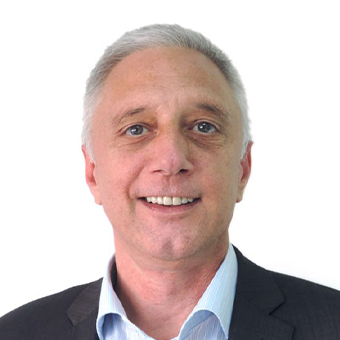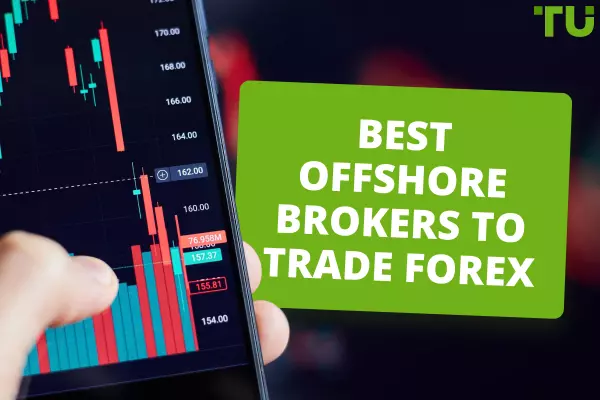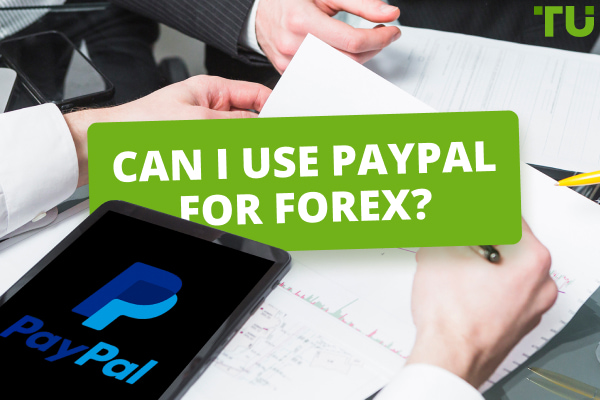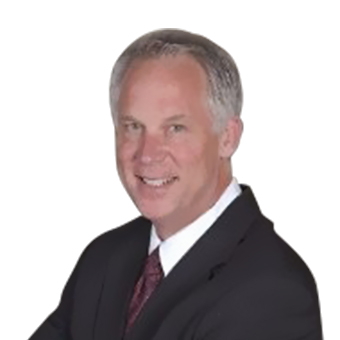10 Best Forex Brokers in the World for 2024

eToro - Best Forex Broker in 2024
Top Forex Brokers in the World in 2024:
eToro - Biggest copy trading community in the world (over 3,000 verified investors with copiers)
OANDA - Best for trading with advanced technical analysis tools (TradingView charts support)
IG Markets - Favorable Forex trading conditions (0 fees, avg. EUR/USD spread - 0.8)
Trading.com - Farouble Forex trading conditions (leverage up to 1:50, 70+ currency pairs)
FOREX.com - Diverse range of tradable assets (80+ currency pairs)
It's essential to trade only with regulated forex brokers because they offer crucial safeguards. Regulation enforces fair practices that reduce the risk of scams and broker manipulation. They also require segregated funds, so your money is held separately from the broker’s, protecting it in case the broker runs into financial trouble.
TU experts have conducted thorough due diligence into some of the more widely used Forex brokers so you can confidently choose the best one for your goals. The brokers were evaluated using such criteria as regulation and security, assets, trading conditions, fees, trading platform, and others.
Best forex brokers in the world
| Broker | Overall Score | Min. deposit | Leverage | Regulation | |
|---|---|---|---|---|---|
5.6 |
50$ |
1:1-1:30 |
CySEC, FCA, ASIC |
||
5.3 |
No |
Up to 1:200 |
FSC (BVI), ASIC, IIROC, FCA, CFTC, NFA |
||
5.98 |
$1 |
Up to 1:200 |
FCA, BaFin, ASIC, MAS, CySec, FINMA, BMA, CFTC, NFA |
||
5.5 |
from 5 USD |
from 1:1 up to 1:30 depending on the instrument |
FCA |
||
5.26 |
$1000 |
Up to 1:400 |
CIMA, FCA, FSA (Japan), NFA, IIROC, ASIC |
||
5.17 |
No |
Depending on the asset |
SEC, FINRA, SIPC, FCA, NSE, BSE, SEBI, SEHK, HKFE, IIROC, ASIC |
||
4.37 |
$1 |
Up to 1:1 |
US Securities Commission (SEC), SIPS |
||
4.35 |
From $0 (from $2,000 to activate margin trading opportunities) |
Floating |
FINRA, SIPC |
||
3.58 |
$1 |
Up to 1:30 |
CNMV |
||
3.38 |
$1000 |
Up to 1:200 |
MFSA |
1. eToro - Biggest copy trading community in the world (over 3,000 verified investors with copiers)
The eToro broker was founded in 2007. The company promotes itself as a social trading platform working with traders from over 140 countries. The broker has several divisions operating under different jurisdictions and licensed by different regulators. For example, eToro (Europe) is licensed by the Cypriot regulator CySEC (109/10) and eToro (UK) is licensed by the British regulator FCA (583263). The broker also has a representative office in Australia and the USA. eToro Profile Details
| 💰 Account currency: | USD |
| 🚀 Minimum deposit: | 50$ |
| ⚖️ leverage: | 1:1-1:30 |
| 💱 Spread: | 2 points |
| 🔧 Instruments: | Currencies, assets of stock and commodity markets, cryptocurrencies |
| 💹 Level of margin call / stop out | n/a |
| 💻 Trading platform: | MobileTrading, WebTrader |
2. OANDA - Best for trading with advanced technical analysis tools (TradingView charts support)
The name OANDA is an acronym for “Olsen & Associates” or “Olsen AND Associates”. It is registered in the United States and provides its clients with a wide range of financial services in most countries of the world. The company was founded in 1996 and is currently regulated in four jurisdictions. The main regulator of the broker is the UK Financial Conduct Authority (FCA). Oanda Canada is licensed by IIROC. The company has several significant awards to its credit, including a victory in the category "Best Forex Trading Technologies" from the UK Forex Awards, "Best Trading Platform" from FX Week, as well as "Best Customer Service" from the US Foreign Exchange Report.
| 💰 Account currency: | USD, EUR, HKD, SGD |
| 🚀 Minimum deposit: | No |
| ⚖️ leverage: | Up to 1:200 |
| 💱 Spread: | 0 points |
| 🔧 Instruments: | FX, Indices, Bullion, Commodities, Crypto |
| 💹 Level of margin call / stop out | Stop Out - 50% |
| 💻 Trading platform: | WebTrader, MetaTrader4, Mobile platforms, MetaTrader5 |
3. IG Markets - Favorable Forex trading conditions (0 fees, avg. EUR/USD spread - 0.8)
IG Markets has been providing brokerage services for retail traders since 2014. It was established in 1974 in London to work with professional traders. It is a part of the IG Group with representative offices in 17 countries. IG Markets stocks are traded on the London Stock Exchange as a part of the FTSE 250 index. The broker is regulated by FCA (Financial Conduct Authority | the UK), CySec (Cyprus Securities and Exchange Commission), ASIC (Australian Securities and Investments Commission), BaFin (the Federal Financial Supervisory Authority | Germany), FINMA (Swiss Financial Market Supervisory Authority), and NFA (National Futures Association). The IG Group global representative office is supervised by BMA (the Bermuda Monetary Authority). The broker provides services of trading Forex and different CFDs through MetaTrader 4 and its in-house platforms for retail and professional traders.
| 💰 Account currency: | USD |
| 🚀 Minimum deposit: | $1 |
| ⚖️ leverage: | Up to 1:200 |
| 💱 Spread: | 0.4 points |
| 🔧 Instruments: | Forex; CFDs on indices, commodities, and stocks; Cryptocurrencies, options, interest rates, sectors, bonds, knock-outs, ETFs, and Futures on indices and commodities |
| 💹 Level of margin call / stop out | No |
| 💻 Trading platform: | MetaTrader4, API, ProRealTime, IG Trading Platform |
4. Trading.com - Farouble Forex trading conditions (leverage up to 1:50, 70+ currency pairs)
Trading.com is a UK broker whose full name is Trading Point. Previously, it was called XMUK, but in 2019 it was rebranded and the company began to operate under its new title: Trading.com. The company offers to trade six asset classes such as currency pairs, metals, as well as CFDs on stocks, stock indices, commodity futures, and energy resources. More than 1,250 assets are available in total. The main office is located in London, the broker is regulated by the FCA (Financial Conduct Authority), and its registration number 705428.
| 💰 Account currency: | EUR, USD, GBP, CHF, AUD, PLN, HUF |
| 🚀 Minimum deposit: | from 5 USD |
| ⚖️ leverage: | from 1:1 up to 1:30 depending on the instrument |
| 💱 Spread: | 0.6 points |
| 🔧 Instruments: | Currency pairs (57), CFD on shares (1200+), commodity group (8), indices (14), metals (2), energy resources (5) |
| 💹 Level of margin call / stop out | 100%/50% |
| 💻 Trading platform: | MT5 |
5. FOREX.com - Diverse range of tradable assets (80+ currency pairs)
Forex.com is a company owned by GAIN Capital Holdings, Inc. (NYSE: GCAP) and has earned a reputation as a reliable broker in the trading industry for its transparent work and high quality of services. The company cooperates with clients in 140 countries. The broker is registered in the Cayman Islands and supervised by CIMA (Certified Institute for Management Accountants). The license number is 25033. The parent company of the Forex.com broker is registered in England and Wales under the number 1761813 at the UK Companies House. It is licensed by one of the most reputable regulators in the world, FCA (No. 113942).
| 💰 Account currency: | USD, EUR, GBP |
| 🚀 Minimum deposit: | $1000 |
| ⚖️ leverage: | Up to 1:400 |
| 💱 Spread: | 0.2 points |
| 🔧 Instruments: | Forex, cryptocurrencies, indices, commodities, stocks |
| 💹 Level of margin call / stop out | N/a |
| 💻 Trading platform: | FOREX.com, MT4, MT5 |
6. Interactive Brokers - Best broker for international investors (assets from 33 countries, 150+ markets)
Interactive Brokers is among the best-known US investment companies, operating since 1977. The broker offers to trade currency pairs, but its basic instruments are stocks, CFD, indices, metals, ETF, futures, and other exchange market assets. You can also trade cryptocurrencies on Interactive Brokers. The company is regulated by the US Securities and Exchange Commission (SEC), the US Financial Industry Regulatory Authority (FINRA), the UK Financial Regulatory Authority (FCA), and other international financial regulation commissions. In 2020, the broker was awarded the "Best Online Broker” (Barron's) and "Best Broker for Economical Investments" (NerdWallet) titles and got five stars in the Online Stock Trading for Traders category (Canstar). Also, the broker is popular in other countries. Here you can read reviews of Interactive Brokers in Canada, Singapore, Australia, Hong Kong, Ireland.
| 💰 Account currency: | USD, EUR, GBP, AUD, CAD, CZK, DKK, HKD, HUF, ILS, JPY, MXN, NZD, NOK, PLN, SGD, SEK, CHF, CNH |
| 🚀 Minimum deposit: | No |
| ⚖️ leverage: | Depending on the asset |
| 💱 Spread: | 0 points |
| 🔧 Instruments: | Stocks, options, futures, currency, metals, bonds, ETF, mutual funds, CFD, EPF, Robo-portfolios, hedge funds |
| 💹 Level of margin call / stop out | Depending on the asset |
| 💻 Trading platform: | Trader Workstation, IBKR Mobile, APIs |
Basic comparisons of the best forex brokers
| eToro | OANDA | IG Markets | Trading.com | FOREX.com | Interactive Brokers | Fidelity | Thinkorswim by TD Ameritrade | iBroker | Tier1FX | |
|---|---|---|---|---|---|---|---|---|---|---|
|
Trading platform |
Mobile Trading, WebTrader |
WebTrader, MetaTrader4, Mobile platforms, MetaTrader5 |
MetaTrader4, API, ProRealTime, IG Trading Platform |
MT5 |
FOREX.com, MT4, MT5 |
Trader Workstation, IBKR Mobile, APIs |
Active Trader Pro |
Thinkorswim |
AARNA iBroker, CQG, Direct API, dt Pro, Mobile application, RJO Futures Pro Mobile, StoneX, S5 Mobile, TradingView, PatSystems |
FORTEX 6, MT4, JForex |
|
Min deposit |
$100 |
No |
$1 |
$5 |
$1000 |
No |
$1 |
$2000 |
$1 |
$1000 |
|
Leverage |
From 1:2 |
From 1:1 |
From 1:1 |
From 1:1 |
From 1:1 |
From 1:1 |
1:1 |
1:1 |
From 1:1 |
From 1:1 |
|
Trust management |
No |
No |
No |
No |
No |
No |
No |
No |
No |
No |
|
Accrual of % on the balance |
No |
No |
No |
No |
No |
No |
No |
No |
No |
No |
|
Spread |
From 2 points |
From 0 points |
From 0.4 points |
From 0.6 points |
From 0.2 points |
From 0 points |
From 0 points |
From 0 points |
From 0 points |
From 0.2 points |
|
Level of margin call / stop out |
No |
No |
No |
No |
No |
No |
No |
No |
No |
No |
|
Execution of orders |
Instant Execution |
Market Execution |
Market Execution |
Market Execution |
Market Execution, Instant Execution |
Market Execution |
Market Execution |
Instant Execution, Market Execution |
Market Execution |
Market Execution |
|
No deposit bonus |
No |
No |
No |
No |
No |
No |
No |
No |
No |
No |
|
Cent accounts |
No |
No |
No |
No |
No |
No |
No |
No |
No |
No |
How to choose the best Forex broker
With so many brokers to choose from, narrowing down the list can be tricky. Here are some key factors to consider when selecting the best Forex broker for your needs:
Regulation: Only open accounts with brokers that are regulated by major authorities like the NFA, ASIC, FCA, or CySEC. This ensures the broker adheres to strict standards and keeps your funds secure.
Spreads/commissions: Compare the spreads and commissions brokers offer. Lower costs allow you to keep more profit from trades. Watch out for brokers advertising very narrow spreads but add markups when you trade.
Trading conditions: Check margin requirements, leverage options, and any trading restrictions. Brokers have requirements around maintaining margin levels. Leverage options vary so choose what suits your risk tolerance.
Trading platforms: The trading platforms should be user-friendly with robust tools for analysis and fast trade execution. Key features to look for include backtesting, automated trading, mobile apps, and a variety of order types. Consider the charting capabilities and availability of technical studies, custom indicators, algos, and screening tools.
Demo accounts: Demo trading accounts let you test drive the broker's platform and get familiar with their services. Make sure demo accounts provide access to live markets and full features.
Customer service: Good brokers invest heavily in customer service. Test response times by contacting support before opening an account. Look for knowledgeable representatives available 24/7 via chat, email, and phone.
Security: Account safety should be a top priority. Check brokers use segregated bank accounts, SSL encryption (look for the padlock icon and https URLs), 2-factor authentication and other security measures to protect your funds and data.
Reviews from other traders: One of the best ways to evaluate brokers is to read through reviews from their existing and past clients. This provides unfiltered feedback directly from traders who have used their platforms and services.
Position in Traders Union's Forex rankings: Our audit of many different Forex brokers is a valuable resource for determining their quality. We judge the individual platforms based on over 100 different characteristics and meticulously evaluate their user reviews.
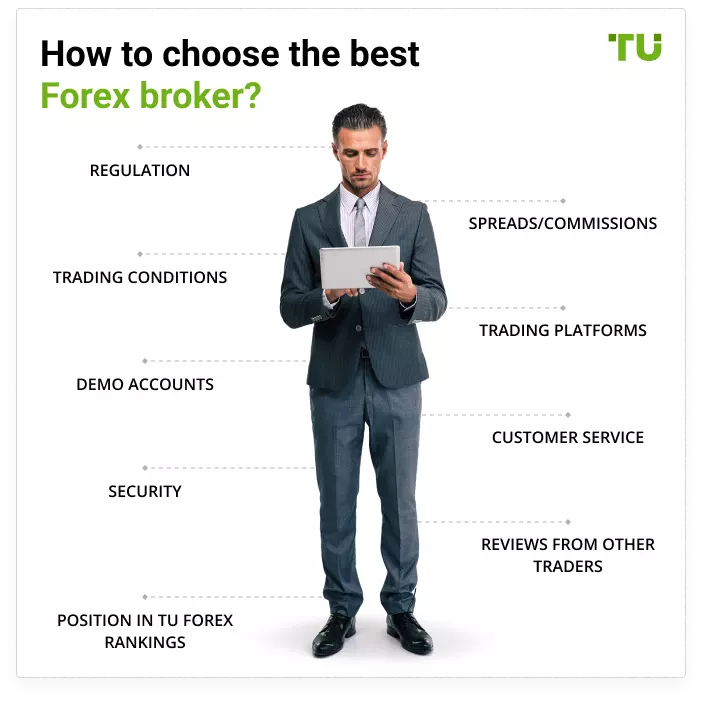
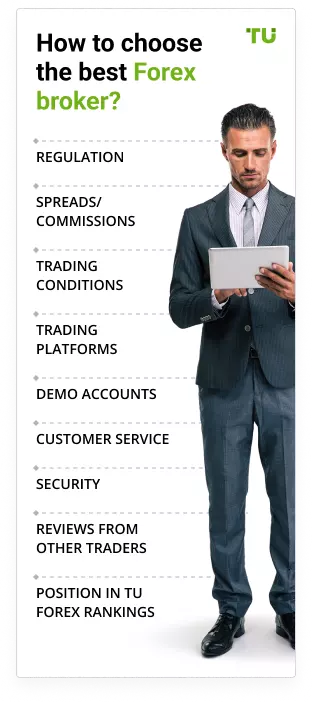
How to choose the best Forex broker?
What are the top Forex accounts for my needs?
For day traders and scalpers
Day traders and scalpers in the forex market can opt for accounts tailored to their trading styles. For frequent, short-term trades, a standard or mini account with tight spreads and low commissions suits day traders. Scalpers, who execute numerous quick trades, typically prefer ECN or STP accounts for their direct market access and fast execution speeds. These accounts offer competitive spreads and minimal slippage, crucial for capitalizing on small price differentials.
Top forex accounts for beginners
Beginning traders in the forex market should start with demo accounts to practice strategies and familiarize themselves with trading platforms without risking real capital. Once comfortable, they can transition to micro or mini accounts, which allow trading with smaller amounts of money, minimizing risk while gaining experience. PAMM accounts and copy trading are also attractive options for beginners to observe and learn from experienced traders.
For advanced investors
Advanced traders have diverse needs and strategies, but generally, they need accounts that offer flexibility and control, such as ECN for tight spreads and STP for fast execution. Most advanced traders require higher leverage options and commission structures that suit their trading frequency and volume. Advanced traders also benefit from advanced charting tools, access to exclusive market analysis, and priority customer support.
What Forex trading costs should I consider?
Forex trading isn't just about buying low and selling high. Various costs can eat into your profits, so understanding them is crucial. Here's a breakdown of key forex trading costs:
-
Spreads: This is the difference between the buy and sell price of a currency pair. It's your broker's fee for executing your trade. Tighter spreads (smaller difference) mean lower costs. For major currency pairs, such as EUR/USD, a spread of 1 pip (or lower) is generally considered tight. Expect slightly wider spreads—2-to 3 pips—for minor currency pairs.
-
Per Lot Fees: Some brokers charge a fixed fee per lot traded. A lot is a standardized unit of currency (usually 100,000 units). This fee can add up for high-volume traders. Look for commissions below $10 per $100,000. Some brokers offer commission-free accounts for frequent traders.
-
Non-Trading Fees: These are additional charges that might not be directly related to your trading activity. They can include:
-
Overnight Financing: If you hold a position overnight, you might be charged interest. This reflects the difference in interest rates between the two currencies you're trading.
-
Inactivity Fees: Some brokers charge a fee for accounts that haven't been used for a certain period.
-
Account Maintenance Fees: A few brokers have monthly or annual fees for maintaining your account.
-
-
Withdrawal Fees: While not all brokers charge withdrawal fees, some might. These fees can vary depending on the withdrawal method (bank transfer, e-wallet etc.).
Top 5 Forex trading platforms in the world
MT4 - Best for beginners
With its user-friendly interface, free platform, and abundance of basic charting and analysis tools the widely used MT4 trading platform makes it easy for beginner and intermediate traders to learn the ropes. Though Its customizability and advanced features like expert advisors cater to experienced traders and automated trading as well.
MT5 - Best for intermediate and advanced traders
One of the top trading platforms in the world, the MT5 platform is best suited for intermediate to advanced traders who require advanced charting tools, algorithmic trading capabilities, and access to a wide range of financial instruments. Its multi-asset platform for stocks, commodities, and futures in addition to forex, and enhanced features and scripting capabilities make it ideal for traders seeking sophisticated analysis and execution options across various markets.
cTrader - Best for algorithmic traders.
The cTrader platform is best suited for intermediate to advanced forex and CFD traders who prioritize clean design, advanced charting capabilities, order execution speed, and access to a wide range of financial instruments. Its user-friendly interface, customizable layout, and integrated trading tools make it ideal for algorithmic traders. Its backtesting tools in particular enable traders to optimize algorithms before risking real capital.
SaxoTrader - Best for advanced investors
Though SaxoTrader suits a wide range of traders due to its intuitive interface and educational resources, advanced traders benefit from its in-depth market analysis, advanced order types, and vast asset selection for diverse trading strategies. Its API access enables traders to connect to external tools and tailor the platform to their needs.
TradingView - Best for charting. Some brokers support trading on TradingView.
The TradingView platform is suited for traders of all levels, from beginners to advanced, but is appreciated most for its superior charting capabilities. Its unmatched customizability, massive indicator library, advanced tools, and comprehensive technical analysis are tops in the industry. Its intuitive interface and social trading features are the cherry on top for traders looking for a versatile platform for analyzing and executing trades.
Expert Opinion
Before a person decides to learn to trade or whether to continue down that path in the Forex market, they should understand the amount of time and effort available to put towards the endeavor. And they should be clear on their motives. Is it learning the skills of trading that is of most interest? Or is it the possibility of making the extra potential return on capital that is driving the decision and trading is one identified solution? This is an important question because trading is difficult. It requires the ability to persevere through a potentially long learning process. It is notorious for its low success rate. Some traders might be better served by focusing on two alternative solutions to engage in the Forex market, but with different risk profiles and commitment requirements compared to trading directly for oneself.
Managed account programs and copy trading services are two solutions that provide engagement with the Forex market while utilizing the expertise of more experienced traders. These programs can significantly lower the amount of time needed to attend to the Forex market. They should be considered by traders who identify their desire to make money as being more important than trading for themselves.
Can I Get Rich in Forex?
It is possible to make a lot of money trading Forex, but it's important to understand that Forex trading is not a get-rich-quick scheme. The reality is that most beginner traders lose money, while successful traders usually have years of experience, training, and discipline under their belts.
To become a successful Forex trader, you need to learn a lot about the markets, trading strategies, risk management, and psychology. You need to develop a solid trading plan and approach the markets with patience, discipline, and a willingness to learn from your mistakes.
Professional traders with years of experience and expertise can make returns of 10-50% per month or more, but these returns are not typical and require a significant amount of skill, effort, and dedication.
As a beginner, it's important to approach Forex trading as a learning experience and to be realistic about the potential risks and rewards. It's a good idea to start with a small trading account and gradually build your skills and confidence over time. With practice and perseverance, you can become a successful Forex trader and potentially earn a good income, but it's important to be patient and realistic in your expectations.
FAQs
Who is the best Forex broker for my needs?
The best Аorex broker choice depends on several factors:
-
Region: Available brokers and their offerings may vary depending on your country of residence.
-
Trading goals: Choose a broker that aligns with your trading goals, whether it's scalping, long-term investing, or something else.
A good solution would be to select a few brokers from the top 5-10 of the rating and then study the reviews on our website in more detail.
How do I know if my forex broker is licensed?
Please, use the following algorithm
-
1
Check the broker's website. Reputable brokers prominently display their regulatory information, including the name of the regulatory body and their registration or license number. This information is typically found in the footer of the website or in an 'About Us' or 'Regulatory Information' section.
-
2
Visit the regulator's website. Cross-check the broker's information with the official website of the relevant regulatory body. Search for the broker's name or registration number to verify their regulatory status.
-
3
Contact the regulator. If you have any doubts, reach out to the regulatory body directly. They can confirm the broker's registration status and provide further information about their regulatory requirements.
How can I find out if a Forex broker operates in my country?
Traders Union employs an API to gather information and compile broker ratings. When you access the Traders Union website using your country's API, the displayed brokers will likely operate in your region.
However, if you have any doubts or are using a VPN, we recommend utilizing the personalized broker selection tool named "Find My Broker" on our website. This tool offers a wide range of filters, including country selection, to help you identify suitable brokers.
You can also verify the information by contacting the broker's customer support.
Who is the biggest Forex broker in the world?
There is no single definitive answer to this question as different rankings may consider different metrics. However, according to one of the most reputable ratings, IC Markets is considered the largest forex broker in the world by trading volume, with a daily trading volume exceeding $22 billion.
Team that worked on the article
Richard has over 30 years of experience in the financial services industry and has written extensively on a broad range of financial and investment topics. He is a contributor to many online publications, including Investopedia and Forbes, and his weekly personal finance columns appear on the websites of more than 100 community and regional banks. Richard has also edited or ghostwritten more than a dozen books.
Bruce Powers is an expert trader and technical analyst with over 20 years of experience in Forex, commodities, ETFs, cryptocurrencies and other assets. He is an active trader, technical and fundamental analyst, media commentator, educator and a writer. As an author for Traders Union, he contributes his deep analytical skills, expertise and understanding of the global economy and financial markets to provide market analysis and insights. Powers is also a frequent guest on business TV news shows.
Mirjan Hipolito is a journalist and news editor at Traders Union. She is an expert crypto writer with five years of experience in the financial markets. Her specialties are daily market news, price predictions, and Initial Coin Offerings (ICO). Mirjan is a cryptocurrency and stock trader. This deep understanding of the finance sector allows her to create informative and engaging content that helps readers easily navigate the complexities of the crypto world.







